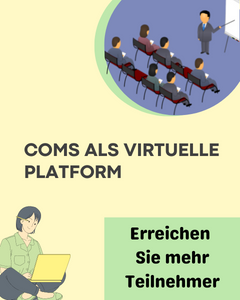Startseite / Konferenzkalender / Mathematik / Neuronale Netze und Künstliche Intelligenz, Maschinelles Lernen / Italien
Konferenzen > Mathematik > Neuronale Netze und Künstliche Intelligenz, Maschinelles Lernen > Italien
Wählen Sie ein Land aus
Deutschland (12) Griechenland (1) Großbritannien (6) Italien (4) Kanada (9) Kroatien (1) Marokko (1) Niederlande (2) Portugal (1) Spanien (1) Südafrika (1) Türkiye (1) Vereinigte Staaten (5) Virtuelle Veranstaltung (1)
1
Lake Como School — MLSR: Machine Learning in Social Science Research: Methods and Applications
04. Mai 2026 - 08. Mai 2026 • Como, Italien
Eintrags-ID:
1690041
Webseite:
2
Lake Como School — SPDL3: Statistical Physics of Deep Learning III
15. Jun 2026 - 19. Jun 2026 • Como, Italien
Eintrags-ID:
1690174
Webseite:
3
Lake Como School — MLPH2026: Machine Learning Photonics
24. Aug 2026 - 28. Aug 2026 • Como, Italien
Eintrags-ID:
1690317
Webseite:
4
Bridging machine learning and statistical field theory through generative and diffusion processes
07. Sep 2026 - 11. Sep 2026 • Trient, Italien
Eintrags-ID:
1691008
Webseite:
Conference-Service.com stellt der Öffentlichkeit ein Kalendarium wichtiger Konferenzen, Symposien und sonstiger Tagungen im wissenschaftlich-technischen Bereich zur Verfügung. Obwohl das Verzeichnis mit großer Sorgfalt zusammengestellt und ständig aktualisiert wird, weisen wir auf die Möglichkeit von Fehlern ausdrücklich hin. Bitte vergewissern Sie sich immer beim Veranstalter, bevor Sie über die Teilnahme oder Nichtteilnahme an einer Konferenz entscheiden.
Stand vom 29. Dezember 2025



